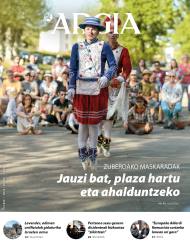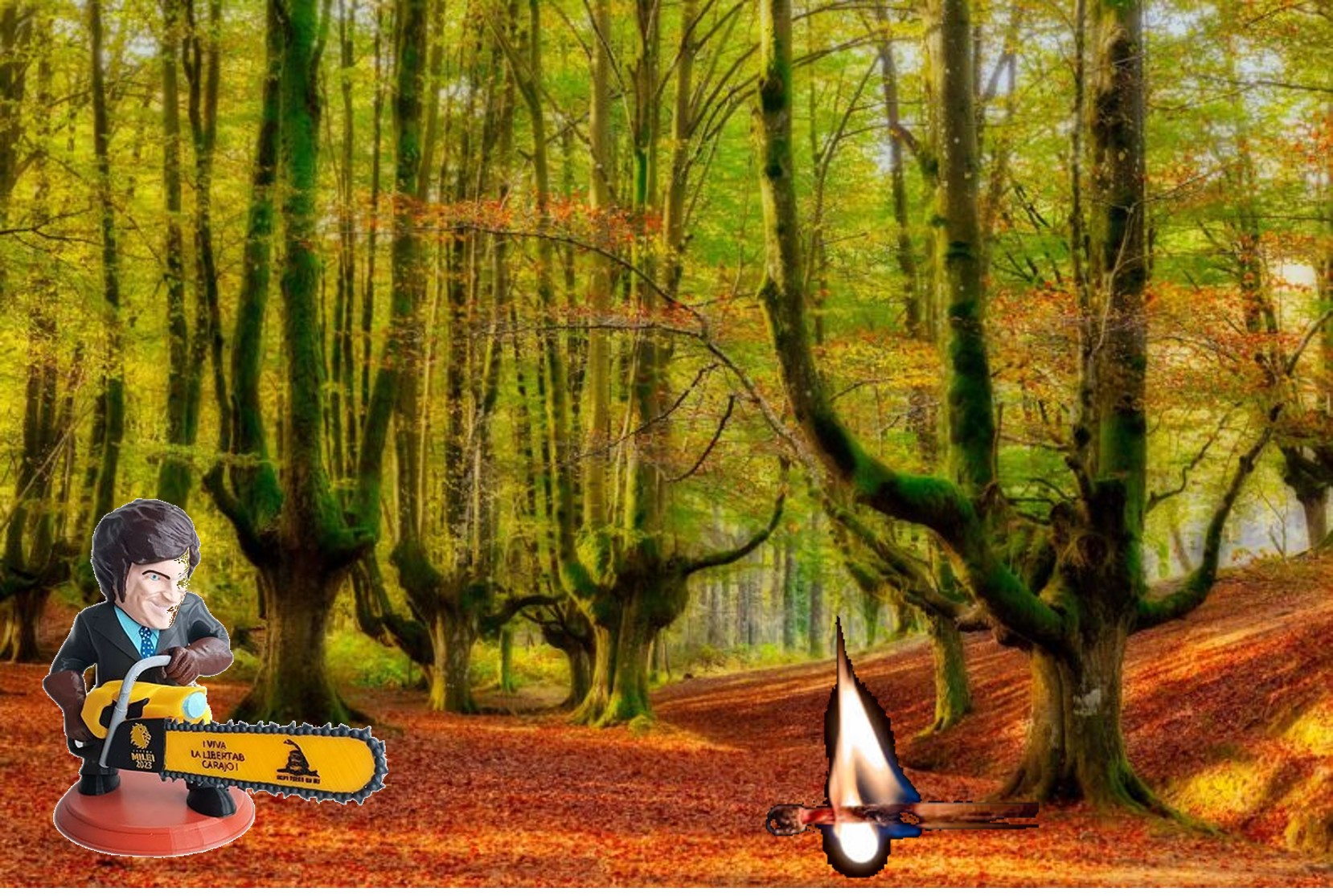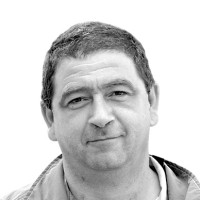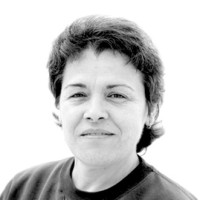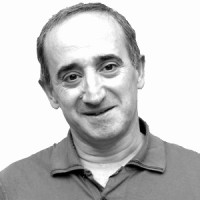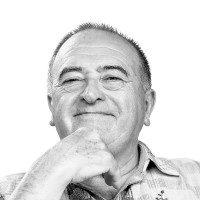Contradictory trends?
“The most Abertzale parliament of all time” vs. “Independence is at the historical lows.” These two statements have been heard in recent times and have increased following the elections held on 21 April in Araba, Bizkaia and Gipuzkoa. These two phrases, considered as findings, emerge on the table, and at first glance it seems that we can be facing contradictory political and sociological tendencies. But I believe that both must be qualified and focused on the objective behind each other.
The time is good for this, because in Hego Euskal Herria an electoral cycle has been closed, only the European elections remain. The municipal and forced elections in May, and the Spanish elections in July, showed trends that were reinforced by the votes of the CAV on 21 April, trends that have not been interrupted.
“The most nationalistic parliament of all time.” The electoral results have brought this reality, the nationalists of Gasteiz, of different kinds, are undoubtedly the majority. Neither the PNV nor EH Bildu have concealed this character in their programs and in the campaign, but at the same time, both the campaign and the political debate of recent times, with the Maratonian pre-campaign, have focused not on the national conflict, but on public services and the right to housing. Therefore, it seems that when voting citizenship has not been a central issue, especially in EH Bildu’s ability to attract votes.
Both the campaign and the last political debate have not focused on the national conflict: public services and the right to housing have been the focus of
In any case, the most stubborn seems to me a second statement: “Independence is at historical lows.” To this assertion that Spanish nationalism and its communication framework insist, I do not think we should give an uncritical acceptance from a Basque perspective. Because when people are asked directly about the subject, what do they answer? There are different things that deserve careful analysis. On the one hand, if we look at long series of surveys such as the CAPV Sociometer, we see that in 1998 it was 25% “for independence” and this year 22% (another 33% “for the situation”). Of course, there have been incidents, but above all it has happened that those who are “against independence” have been activated, especially since 2017, after the Catalan referendum.
I believe that that year is key to analysing social positions on independence. Until then there was a mantra in the political debate: “Without violence all political projects can be defended”. The Catalan Pacific process made it clear, even in Euskal Herria, that a peaceful process would have a violent response from the Spanish State. So things, when you ask about the political future otherwise, the results are different: the Nationmetro, for example, has shown in its measurements that the citizens do not respond abstractly about independence or, on the contrary, ask about a Basque state after an agreed referendum. In the latter case, the majority is in favour of the opposite.
Consequently, independence or social attitude towards a State is not clear, but nuanced. Without falling into the self-indulgence that electoral results can offer, I think it is advisable not to believe in this issue the interested discourse of Spanish nationalism.
Bidali zure iritzi artikuluak iritzia@argia.eus helbide elektronikora
ARGIAk ez du zertan bat etorri artikuluen edukiarekin. Idatzien gehienezko luzera 4.500 karakterekoa da (espazioak barne). Idazkera aldetik gutxieneko zuzentasun bat beharrezkoa da: batetik, ARGIAk ezin du hartu zuzenketa sakona egiteko lanik; bestetik, egitekotan edukia nahi gabe aldatzeko arriskua dago. ARGIAk azaleko zuzenketak edo moldaketak egingo dizkie artikuluei, behar izanez gero.
You may not know who Donald Berwick is, or why I mention him in the title of the article. The same is true, it is evident, for most of those who are participating in the current Health Pact. They don’t know what Berwick’s Triple Objective is, much less the Quadruple... [+]
The article La motosierra puede ser tentadora, written in recent days by the lawyer Larraitz Ugarte, has played an important role in a wide sector. It puts on the table some common situations within the public administration, including inefficiency, lack of responsibility and... [+]
Is it important to use a language correctly? To what extent is it so necessary to master grammar or to have a broad vocabulary? I’ve always heard the importance of language, but after thinking about it, I came to a conclusion. Thinking often involves this; reaching some... [+]
The other day I went to a place I hadn’t visited in a long time and I liked it so much. While I was there, I felt at ease and thought: this is my favorite place. Amulet, amulet, amulet; the word turns and turns on the way home. Curiosity led me to look for it in Elhuyar and it... [+]
Adolescents and young people, throughout their academic career, will receive guidance on everything and the profession for studies that will help them more than once. They should be offered guidance, as they are often full of doubts whenever they need to make important... [+]
It will be two or three weeks since I read it, in a column by Maialen Akizu. Aner Peritz brought with him what he said on TV: “Bertsolarismo is what has led me not to interact with zis hetero men, because bertsolarismo is what has made me dissident, and also because... [+]
If that's the fear. Donald Trump seems to have come to occupy Washington’s rounded office for a long time. He has a second mandate, but to his close advisers, confirming that he is not joking, he also mentions his rigid goal of changing some isolated numbers in the Constitution... [+]
Ansorena´tar Joseba Eneko.
Edonori orto zer den galdetuz gero, goizaldea erantzungo, D´Artagnanen mosketero laguna edo ipurtzuloa, agian. Baina orto- aurrizkiak zuzen adierazten du eta maiz erabiltzen dugu: ortodoxia, ortopedia, ortodontzia... Orduan (datorrena... [+]
“Bag of resilience”, “survival manual”, “backpack of evacuations”: that’s what you can hear in the mouths of the authorities in recent weeks.
Among the declarations of the past month, the European Union has asked the population to prepare a “survival kit” to... [+]
It’s not Christmas Day, it’s Christmas Day that we Basques need. Once a year there are repeated calls from potential patriotic parties and groups, on these dates, the homeland of the Basque Country is the Basque Country/Euskal Herria around the proclamation. It's a matter of a... [+]
Last week I had a nice meeting with a group of women that I hadn’t seen for a long time, and we talked about doing it, linked to spaces of technology and creation.
The oldest of these women, who is on the frontier of retirement, is a programmer and enjoys programming code... [+]
Hainbatetan esan izan didate arkitektoen lanaren gauzarik indartsuena dela ekoizten duguna betikotu egiten dela. Eraikinaren betikotasunak gizakiaren presentzia tenporala gainditzen duela eta geroko etorkizunean iraunkor egingo gaituela. Eta liburu batekin gertatzen ez den... [+]
Many Basque feminists have been disappointed to learn that writer Chimamanda Ngozi Adichie has externalized pregnancy, meaning that a surrogate has fertilized her baby for money.Adichie is the author of the essay We should all be feminists, among others. They have ignored the... [+]
We have had to endure another attack on our language by the Department of Education of the Government of Navarre; we have been forced to make an anti-Basque change in the PAI program. In recent years, by law, new Model D schools have had to introduce the PAI program and have had... [+]









